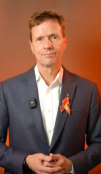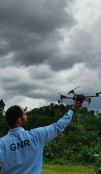EUROPEAN DIPLOMATIC PROGRAMME
The event was jointly organised by the Department of the Diplomatic Academy of the Ministry of Foreign Affairs and Trade of Hungary and the Division of Career, Learning and Development, EU Diplomatic Academy (BHR.4) of the EEAS. It brought together 74 participants: 57 junior diplomats from all EU Member States and 17 junior EU officials from the EEAS, European Commission and the General Secretariat of the Council of the EU plus Trainings Directors from 24 Foreign Ministries of the EU Member States.
The plenary was opened by Dr. Orsolya Pacsay-Tomassich, President of the Hungarian Diplomatic Academy, and Charles-Michel Geurts, Head of EEAS BHR.4. They both warmly welcomed all the participants and emphasized the importance of the EDP in terms of expanding the knowledge and deepening diplomatic skills of the junior EU diplomats and officials, and at the same time for networking and establishing professional contacts across the EU, which helps strengthening the European spirit and contributes to creating the EU corps diplomatique.
The opening speeches were followed by two panels. The first one focused on EU enlargement policy, when the speakers, László István Dux, Director General at the Ministry of Foreign Affairs and Trade of Hungary; Szabolcs Horváth, Senior Expert at the European Commission and Charles-Michel Geurts, Head of Division at the EEAS discussed the EU's long-term vision for enlargement, the current status of candidate countries or how can the EU support reforms in candidate countries to speed up their path to membership. Within the broader geopolitical landscape, all the speakers agreed that EU enlargement plays an essential role in ensuring stability and security in Europe.
The second panel dealt with the topic of EU competitiveness. The speakers, Eric Dejoie, Deputy Head of Division, Economic Issues and Global Health, EEAS; Dr. András Tóth, Vice President of the Hungarian Competition Authority and Dr. Szabolcs Pásztor, Research Director of the Oeconomus Economic Research Foundation talked about the elements of the external dimensions of competitiveness, such as economic aspects, response to new technological challenges and the EU’s global competitors.
During the Training Directors’ meeting, the EEAS and EUMS representatives shared experience and exchanged their views on new trends in the field of Learning and Development. They heard updated information about the EU Diplomatic Academy, the specifics of mandatory trainings at EUMS MFAs and about the trainings exchange between the EEAS and EUMS. In parallel, the junior diplomats and officials took part in three interactive workshops focusing on the future of European security, soft power diplomacy and the use of AI in diplomacy.
All the participants had a chance for networking and bonding together at an informal Quiz night that preceded the formal event, during a guided visit to the Hungarian Parliament and at a gala dinner on a boat.
The EEAS would like to thank the Hungarian Presidency and the Ministry of Foreign Affairs and Trade of Hungary, in particular to Dr. Ádám Imre Szűcs, Director General at the Department of the Hungarian Diplomatic Academy, and his team for an excellent and successful organization of the Module I of the 25th EDP.
The European Diplomatic Programme was established in 1999 and it consists of four modules that make up an academic year. The principal aims are enabling professional debate and networking among junior EU diplomats and officials while strengthening their European spirit. Modules I and IV are organised by the respective Member States presiding the Council of the EU, Module II takes place at MS MFAs for small groups of participants and Module III is organised by the EEAS in Brussels.
The 25th EDP
Module I: Budapest, 20-22 November 2024
Module II: MS capitals, January or February 2025
Module III: Brussels, 10-14 March 2025
Module IV: Warsaw, 27-28 May 2025





